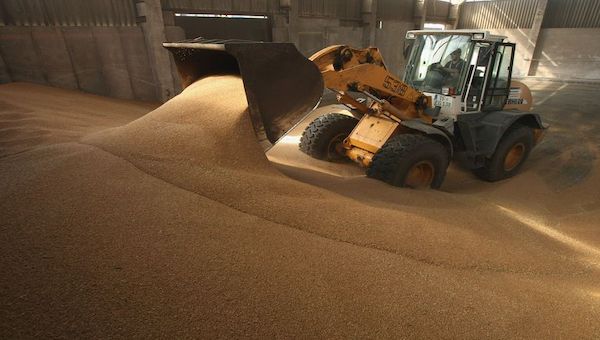
UN REPORT: FARM SUBSIDIES ARE CAUSING MORE HARM THAN GOOD
BY: ELIZABETH WADDINGTONSITE: TREEHUGGER
A new report urges governments to rethink how they support food production.
A worrying UN report has found that almost 90% of the subsidies given to farmers around the globe each year are harmful to people and the planet. Agricultural support adds fuel to the flames of the climate crisis, contributes to environmental destruction, harms people's health, and adds to inequalities by excluding small-scale enterprises.
This report, published by the UN Food and Agriculture Organization (FAO), the UN Environment Programme (UNEP), and the UN Development Programme (UNDP) covers subsidies in 88 countries for which reliable data is available.
Qu Dongyu, FAO director general, called this report a “wake-up call”. Governments around the globe, he said, must “rethink agricultural support schemes to make them fit for purpose to transform our agri-food systems and contribute to the four betters: better nutrition, better production, better environment, and a better life.”
Propping Up Harmful Agricultural Systems
The report highlighted 87% of the $540bn a year spent on farming subsidies between 2013 and 2018, which were considered to be "harmful" in a range of ways. Subsidies for fertilizers and pesticides contribute to ecosystem degradation and biodiversity losses, and such substances can often pose an immense threat to human health. Price incentives for specific produce or crops, as well as distorted export subsidies and import tariffs, increase wealth disparities between developed nations and the developing world.
Marco Sanchez, deputy director of the FAO and an author of this report, welcomed an increased alignment to the goals of the Paris Climate Agreement in the U.S. and elsewhere; but he warned that "there is no way they can achieve those climate goals if they don't tackle the food industries."
He also highlighted the role which subsidies have played in promoting excessive meat consumption in wealthy nations and low-nutrition staple crops in poorer ones. Farming subsidies contribute to nature degradation and to creating the current conditions, where two billion people around the world cannot afford to eat a healthy diet.
Joy Kim, from UNEP, summed up the issue. “Agriculture contributes a quarter of greenhouse gas emissions, 70% of biodiversity loss, and 80% of deforestation.” International finance pledges for climate change were $100bn a year and $5bn a year for deforestation. She continued: “But governments are providing $470bn [in farm support] that has a huge damaging impact on climate and nature.”
The Future of Farming Subsidies
As the report outlines, there is great potential to repurpose agricultural support to transform food systems. Rather than hindering progress towards the Paris Agreement and Sustainable Development Goals, support mechanisms for farming could be harnessed to aid economic recovery from the pandemic and drive sustainable, equitable, efficient change in the agricultural industry.
The EU will pay €387bn (US$453bn) in farm subsidies from 2021 to 2027, but green MEPs in Brussels have said that a planned overhaul fails to align agriculture with EU climate change targets. Farming subsidies will be tied to compliance with environmental rules, and countries must spend 20% of payments to farmers from 2023-2024 and 25% from 2025-2027 on "eco-schemes" which protect the environment. But "eco-scheme" has not been clearly defined, and campaigners and some lawmakers argue that the environmental rules lack rigor or are voluntary.
Sanchez argues that overhauling farming support in the face of vested interests is a major challenge. But it can be done through spelling out the costs to governments, by consumers demanding better, and by financial institutions ceasing all lending to damaging activities.
A separate report from the World Resources Institute, published in August of this year, spoke of the urgent necessity to reinvest public agricultural subsidies in land restoration, adding to the growing understanding that channeling subsidies into low-carbon agricultural techniques like agroforestry can improve global food security and protect vulnerable ecosystems.
If reform in farm subsidies does not take place, according to the authors of this report, “subsidies will render vast expanses of healthy land useless.” And by 2050, we risk being unable to feed the world's 10-billion population.The damage caused to nature by farm subsidy regimes, according to a recent review, was $4 trillion to $6 trillion. And the human costs of current systems are also clear. But urgent reform to agricultural financial support can drive change in the right direction.
A Multi-billion-dollar Opportunity- Repurposing Agricultural Support to Transform Food Systems . Food and Agriculture Organization of the united Nations , 2021.
Repurposing Agricultural Subsidies to Restore Degraded Farmland and Grow Rural Prosperity . World Resources Institute , 2021.
The Economics of Biodiversity: The Dasgupta Review . Headline Messages , 2021.


